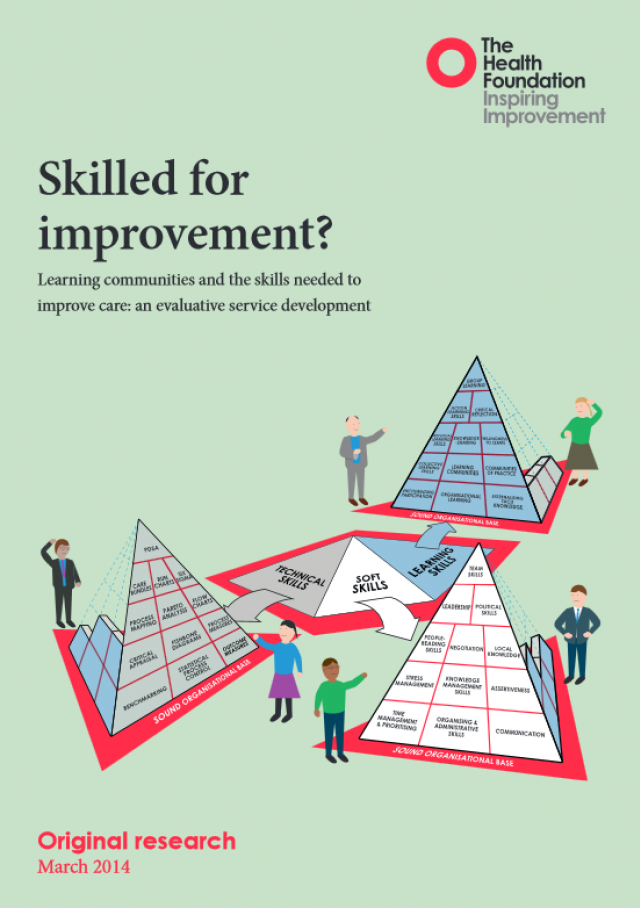Skilled for improvement? Learning communities and the skills needed to improve care: an evaluative service development
March 2014

Key points
- Applying the techniques of improvement science alone is unlikely to be sufficient to deliver sustained quality improvements in healthcare.
- Any organisation wishing to improve quality – whatever its starting point – must invest in developing the three sets of skills: ‘technical’, ‘soft’ and ‘learning’ skills.
- Developing these skills must be a central part of managers’ and practitioners’ roles – not just a marginal ‘add on’.
- Strong and sustained institutional support is necessary to create an organisational environment that is conducive to improvement.
- Improvement work should not underestimate the influence of key individuals who can either drive projects forward or hold them back.
- Strong leadership is vital.
- Improvement projects require in-built flexibility to adapt to changing realities.
- Differences or lack of engagement and partnership working between various sectors and disciplines can determine the success of improvement interventions.
- It is generally easier to move forward with an improvement project when it coincides with existing work streams.
This report tells the story of the Learning Communities Initiative, in which an experienced research team used an action approach (combining action research and action learning) to study four improvement projects across two sites, while working with participants to facilitate the flow of knowledge and learning.
The authors identify three sets of skills – ‘technical’, ‘soft’ and ‘learning’ skills – that they found were essential for successful implementation of improvement. They use the analogy of a three-sided pyramid: to reach the point of sustained improvement (the apex of the pyramid), the organisational base (environment, culture, structures and resources) should be broad and solid enough to support the construction of the three ‘walls’ (each of the three sets of skills) to the same (maximum) height.
Further reading
Work with us
We look for talented and passionate individuals as everyone at the Health Foundation has an important role to play.
View current vacanciesThe Q community
Q is an initiative connecting people with improvement expertise across the UK.
Find out more

